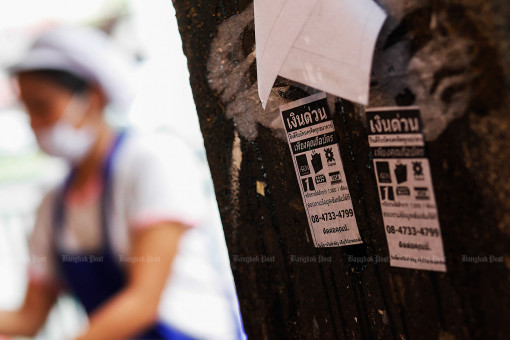Move Forward Party ready to grill govt over 2024 spend
PUBLISHED : 11 Dec 2023 at 04:39

The opposition Move Forward Party (MFP) is ready for a debate scheduled next month on the government’s budget bill for the 2024 fiscal year, according to its deputy leader.
Sirikanya Tansakul said the party’s working committee has outlined a number of specific topics for the debate so its MPs can prepare ahead of the House meeting.
“The MFP is educating its MPs to be prepared for the first reading of budget bill for the 2024 fiscal year,” Ms Sirikanya, who also leads the party’s economic team, said.
All MPs will be instructed on how to read and analyse the costing and timeline of the 3.48-trillion-baht bill, she said.
Ms Sirikanya said Thai governments have run budget deficits for years, yet next year’s security spending is still earmarked to increase one-third when compared to this fiscal year.
Weapons procurement will take up about 30 billion baht from the overall budget of 3.48 trillion baht, although much of that sum will be used to cover the salaries of the large number of soldiers currently in active duty, according to Ms Sirikanya.
Nevertheless, the MFP’s deputy chief said the public should be aware that public debt is not scary if loans are used to initiate or carry out key projects that are necessary for development of the country or combat climate change, for example.
She said she the MFP also supports a budget for decentralisation as it will help boost efficiency in dealing with urgent matters.
However, the names of some of the projects currently being mulled over are irrelevant to their details, she added.
She also said the sums should not be kept confidential, in an effort to ensure transparency in the state administration.





















